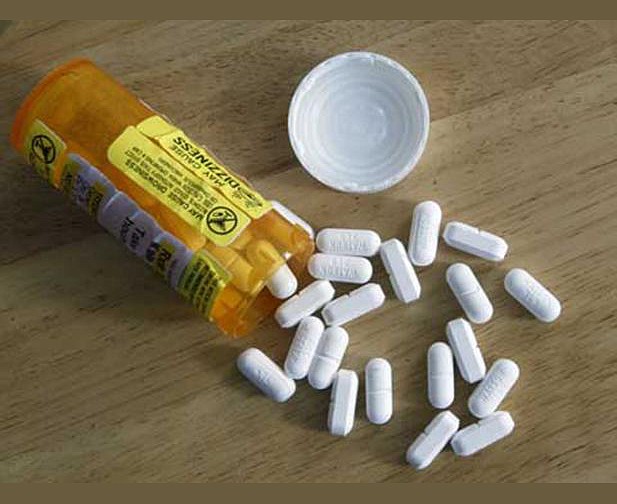Painkiller prescriptions in Tennessee on the rise
Friday, January 1, 1904
NASHVILLE - The number of prescriptions for painkillers is up for another year in Tennessee, a report by the state Department of Health shows. This year's increase is slight -- nearly 1.5 percent -- compared to the previous year, leading officials to believe they are finally getting a handle on the prescription drug epidemic in the state.
Tennessee has some of the highest prescription drug abuse rates in the nation.
The report to the General Assembly shows that pharmacists dispensed nearly 18.3 million prescriptions in Tennessee last year for controlled substances such as OxyContin and hydrocodone.
State officials say new laws designed to curb prescription drug abuse and monitor patients who might be doctor shopping are starting to pay off. Despite the slight increase in the number of prescriptions dispensed for painkillers, it's nothing compared to the year before, which saw a 23 percent rise in the number of prescriptions for controlled substances filled in Tennessee.
"The overall increase in the number of prescription drugs was really very small in 2012," David Reagan, chief medical officer for the state Department of Health, said. He said it contrasts with years of steady increases of prescriptions for addictive drugs in the state. "We were very pleased to see such a small increase."
State law requires pharmacists and doctors to enter drug information into Tennessee's Controlled Substance Monitoring Database when they dispense pain medicines. The report, which was sent to the legislature last month, looks at the number of controlled substances dispensed in Tennessee last year. It shows that counties with the highest rate of use of painkillers and other commonly abused drugs include: Benton, Decatur, Fentress, Grundy, Scott and Unicoi counties.
Reagan said the addition of two new drugs to the list of controlled substances in April of 2011 is partly to blame for some of the increase in the number of prescription painkillers dispensed last year.
Hydrocodone is once again the No. 1 used painkiller in Tennessee, the report shows. The anti-anxiety drug alprazolam, which is marketed under the brand name Xanax, ranked next in number of prescriptions filled for controlled substances. Oxycodone ranked third.
Tennessee is on the front lines of one of the nation's worst drug epidemics. An Associated Press analysis last year, which showed the rate of prescription drug sales soaring across the nation, found that per capita, oxycodone sales increased five- or six-fold in most of the state from 2000 to 2010.
Drug overdose is the leading cause of accidental death in the Volunteer State. There were 1,062 people who died from drug overdose in Tennessee in 2011, the latest figures available. Some believe the figures to be much higher.
Lawmakers have come up with a number of ways to combat Tennessee's prescription drug crisis. A law passed last year requires physicians to check a database before they prescribe a patient commonly abused drugs, just to make sure the patient hasn't been doctor shopping.
The report also shows that pharmacists, doctors and law enforcement are increasingly using the state's Controlled Substance Monitoring Database to look for signs of abuse --by either patients or doctors who are writing too many prescriptions.
The report shows that some doctors are prescribing enormous amounts of drugs.
"Analysis of the top prescribers for 2012 indicates that 52 providers prescribed over 1 million dosage units," the report said.
Law enforcement is also increasingly using the data, the report shows.
Police agencies made 2,565 requests last year for reports from the database, compared to 678 the year before.
"We feel like there's hope," Reagan said. "We're seeing some modest but positive trends."

